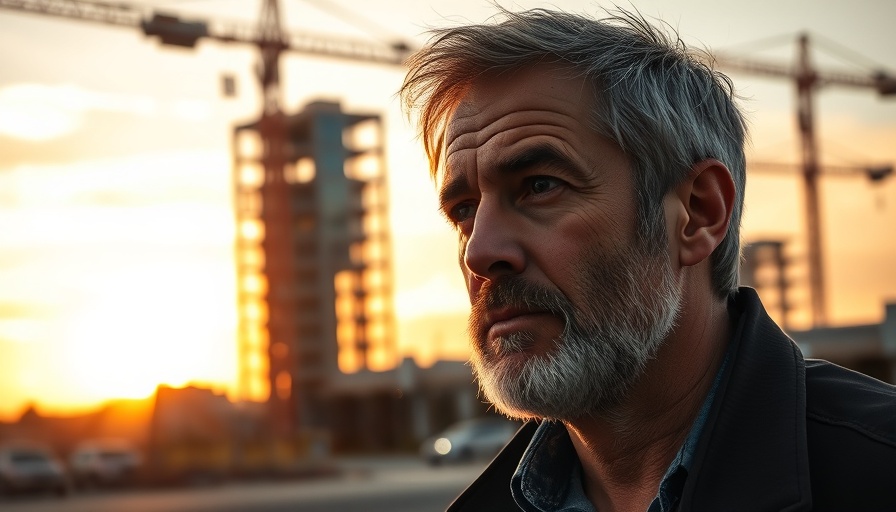
The Serious Citations Against Tesla: Fatal Oversights
The Occupational Safety and Health Administration (OSHA) has recently levied significant fines against Tesla, amounting to nearly $50,000 for serious safety violations in relation to a tragic worker death at their Gigafactory in Austin, Texas. This penalty underscores ongoing concerns about workplace safety practices at one of the world's most prominent electric vehicle manufacturers. The fines stem from three serious violations associated with the electrocution of Victor Gomez Sr., a 46-year-old electrician, during an inspection of electrical panels in August 2024.
Unpacking the Violations: What Went Wrong?
According to OSHA, the penalties consist of three serious violations—each carrying a fine of $16,550. The first citation highlights a failure to provide appropriate personal protective equipment, which is critical when working close to energized electrical parts. The second violation details how workers were allowed to operate near electric power circuits without adequate safeguards, namely not de-energizing or insulating the circuits. Lastly, the third violation called out Tesla for neglecting to post necessary warning signs or properly inform employees about working in energized areas.
This enforcement action follows a wrongful death suit filed against Tesla, which alleges negligence in the working environment that led to Gomez's death. Such violations reflect a broader issue within Tesla, where substantial changes in safety culture may be necessary to prevent similar incidents in the future.
The Political and Ethical Context: Musk's Influence
The citations also shine a light on the complex relationship between corporate governance and regulatory oversight, especially under the leadership of high-profile figures like Elon Musk, who is currently spearheading the controversial Department of Government Efficiency in the Trump administration. Critics have raised concerns over how Musk's positions in various governmental and private roles could lead to conflicts of interest that undercut safety regulations.
U.S. Rep. Greg Casar of Austin notably expressed these concerns, urging OSHA to fully disclose their investigation results to ensure transparency and accountability. His call for action demonstrates a deeper apprehension regarding the prioritization of profit over worker safety, particularly with figures like Musk pushing for deregulation amidst fatal incidents.
The Broader Implications for Worker Safety: Lessons to Be Learned
The citations serve as a harsh reminder of the critical role regulatory agencies like OSHA play in protecting workers. Many advocates are reiterating that we must not only hold companies accountable when tragedies occur but also emphasize the need for proactive measures in worker safety. Negotiating fines often leads to lowered penalties during appeal processes, demonstrating a potential loophole that might need tightening to ensure that companies prioritize worker health and safety.
This incident at Tesla is not an isolated one within the industry. OSHA has reported multiple past violations related to Tesla's handling of chemical hazards, indicating a systemic issue whose implications extend beyond workplace safety. As public sentiment increasingly advocates for stronger protections for workers, Tesla's situation could prompt broader industry-wide reforms that emphasize the importance of safety protocols in rapidly evolving workplaces.
Next Steps: What Can Be Done?
As the situation develops, it is crucial for stakeholders—including employees, lawmakers, and safety advocates—to continue advocating for safer working conditions. Tesla's management must respond not only to the fines but also to implement tangible changes that enhance workplace safety. Training programs, better safety gear, and stricter adherence to regulation protocols should be initiated immediately.
Furthermore, public discussions surrounding worker protection and regulatory processes must remain at the forefront of the national dialogue. Given Tesla's influential position in the sustainability sector, their commitment to safety could set a crucial precedent for other companies to follow.
Conclusion: Advocating for Accountability
In light of OSHA's latest findings, it is vital for community members to stay informed and voice their concerns regarding workplace safety protocols. As you consider this critical issue, follow our coverage of local news developments as laws and regulations continue to evolve. Advocating for stronger workplace safety and holding powerful figures accountable is a civic duty that we must all embrace as we navigate these complexities.
 Add Element
Add Element  Add Row
Add Row 



 Add Row
Add Row  Add
Add 


Write A Comment